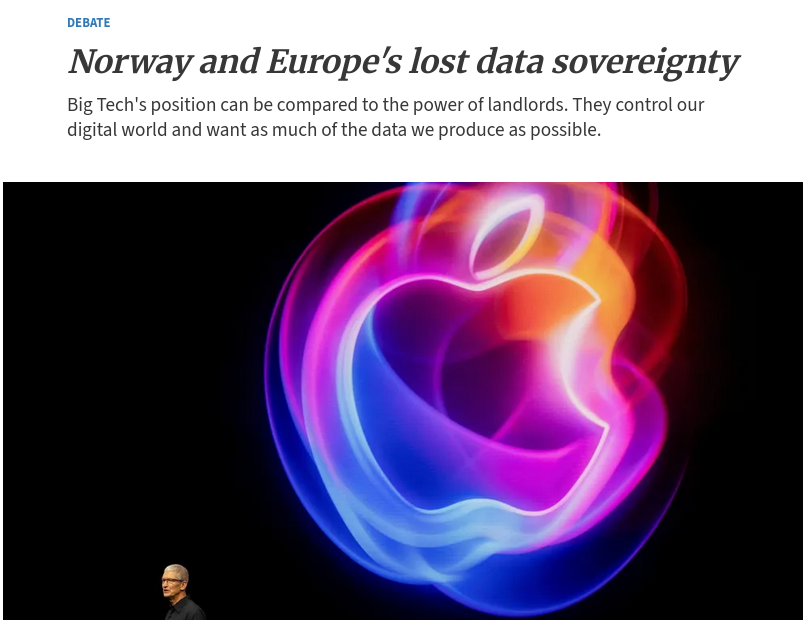Control Your Systems, Control All Your Data
Yesterday, 80 years after the end of "The War", Norwegian media spoke about Norway's - and by extension Europe's - lost data sovereignty (automated translation). Here in the UK, GAFAM is asked to give us back doors, which does not tackle the problem but creates new problems - some among which we kept revisiting this past week. We've outsourced far too much to the US, which a growing number of Europeans (and even Canadians) deem a hostile country.
Two years ago we left the US and there are sites out there that speak of "GAFAM" or "US" or "Trump" as the thing to reject/exit/boycott/escape. We'd rather not use negative words like these and instead focus on the basic idea that individuals should be in control of their data to the extent feasible (and practical, e.g. family photos). Nations in general (for governments have plenty of confidential and sensitive data on their citizens) should also strive to take control of their computer systems and their data - two related things by the way, sometimes inseparable.
The concept or the notion (or mere prospect) of former allies becoming untrustworthy aren't foreign or outlandish. At some stages in the war Stalin and Hitler collaborated - albeit that's not the story Russia wants to tell right now.
Instead of asking which US company is least bad for data protection or which other nation is least likely to become a foe in the future nations must simply ask a much more fundamental question: what does it take for us to control our own systems and data?
Usually the answer is Free software. It's not enough. But it's a start. █

